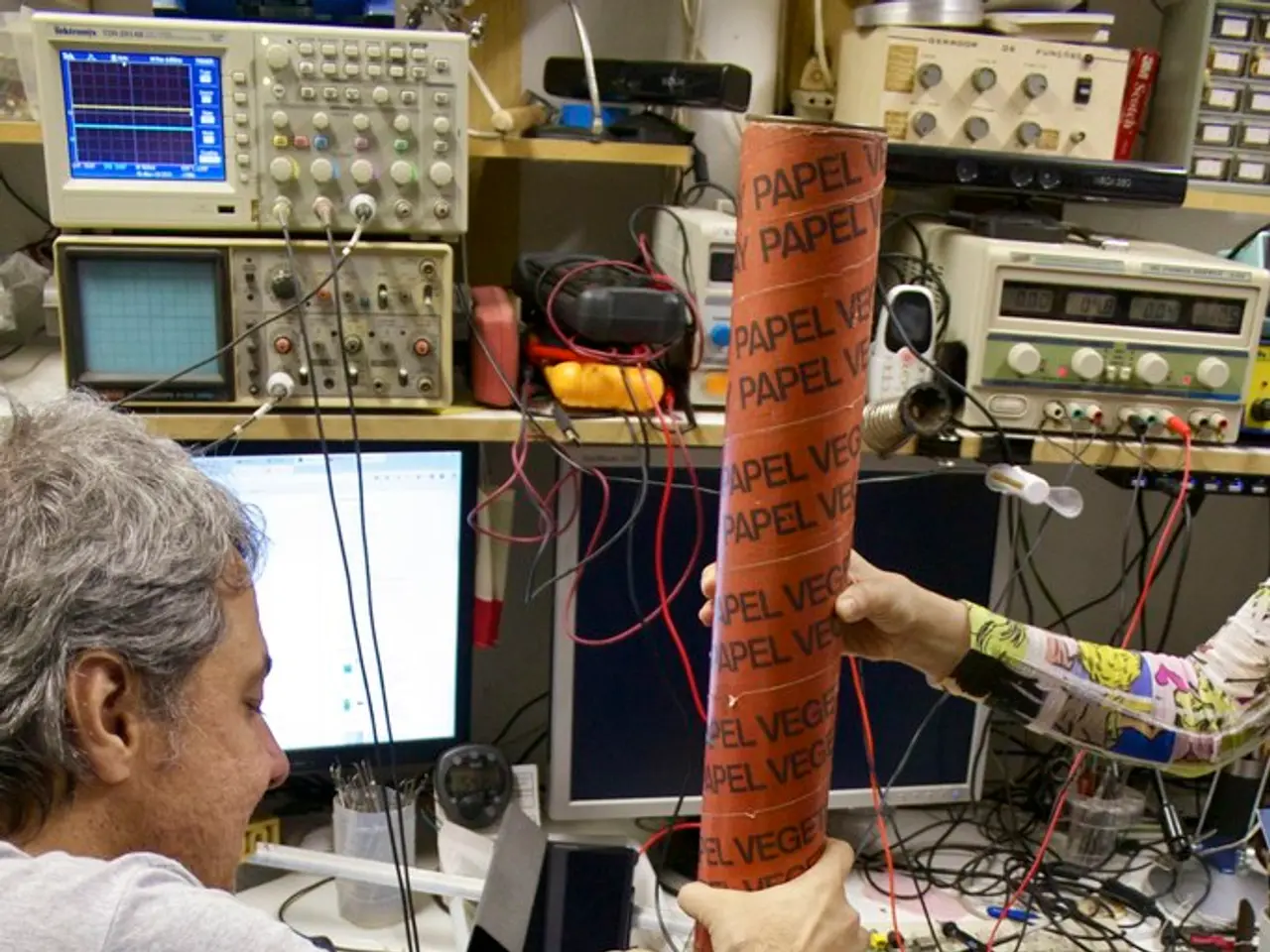Effects of Simplistic Living on Mental Health and Brain Functioning
In the digital age, where technology often serves as a source of distraction and stress, it can also be a valuable ally in the pursuit of minimalism. Digital tools and apps are designed to help streamline tasks, organize information, and reduce digital clutter, making daily life more manageable and less overwhelming [1].
Digital clutter, such as an overflowing email inbox, excessive social media consumption, and unorganized digital files, can be just as overwhelming as physical clutter. This digital overload can lead to decreased productivity, increased anxiety, and difficulty in processing information [2]. In response, minimalism extends its principles to our online behaviors and digital interactions, aiming to create a more focused and mindful digital lifestyle [3].
Minimalism positively impacts cognitive well-being in the digital age. By reducing digital overload and cognitive clutter, it enhances focus, mental clarity, and emotional health. Reducing cognitive load and mental fatigue, improving emotional well-being and focus, and enhancing relationships are key impacts on cognitive well-being [2].
To apply minimalist principles to reduce digital clutter and enhance focus, consider the following strategies:
- Create a personal technology philosophy: Decide deliberately when, where, and how to use digital tools to ensure they serve your goals rather than distract [1].
- Limit screen time: Use app controls or device features to restrict recreational digital use, prioritizing meaningful activities. Incorporate tech-free periods such as during meals or before bedtime to improve focus and sleep [1][3].
- Declutter digital devices:
- Delete unused apps and remove social media apps from home screens to avoid mindless scrolling [5].
- Aim for "inbox zero" on a weekly basis to reduce email overload [5].
- Cancel unused digital subscriptions that create background noise [5].
- Manage photos by setting up automatic backup and deleting unnecessary images periodically [5].
- Use technology mindfully: Employ mindfulness apps that promote intentional use and mental health, turning technology from a distraction into a tool for well-being [3].
By intentionally reducing digital clutter and distractions through these minimalist strategies, individuals can reclaim their attention, improve cognitive performance, reduce stress, and enhance overall well-being in the digital age [1][2][3][5].
The challenge lies in using technology in a way that aligns with minimalist values - focusing on functionality and efficiency rather than excess and distraction. Minimalism enhances focus and concentration by eliminating superfluous items and distractions from our environment. By consciously reducing our digital footprint and interactions, we can mitigate the negative impacts of technology on our cognitive health, fostering a more balanced and mindful relationship with the digital world.
Sources: [1] Cal Newport, "Digital Minimalism: Choosing a Focused Life in a Noisy World" [2] Leo Babauta, "The Power of Less: The Fine Art of Limiting Yourself to the Essential—in Business and in Life" [3] Fumio Sasaki, "Goodbye, Things: The New Japanese Minimalism" [5] Joshua Fields Millburn and Ryan Nicodemus, "Minimalism: Live a Meaningful Life"
- In the digital age, where technology can often cause distraction and stress, it can also be a valuable ally in promoting mental health and enhancing productivity.
- The digital age is marked by an abundance of information, leading to decreased attention span and increased anxiety due to digital overload.
- Minimalism, with its focus on decluttering and eliminating distractions, can play a significant role in improving mental clarity and emotional health in the digital age.
- Embracing a minimalist approach to technology usage can help individuals streamline tasks, manage their time better, and foster a more focused and mindful digital lifestyle.
- Practicing mindfulness, a pillar of minimalism, can help transform technology from a source of stress and distraction into a tool for mental health and stress management.
- By creating a personal technology philosophy, individuals can ensure they use digital tools intentionally and efficiently, aligning with minimalist values.
- To manage digital clutter, consider strategies such as deleting unused apps, aiming for "inbox zero," and managing photos effectively to reduce email overload and excess digital files.
- Incorporating tech-free periods into daily routines can enhance focus, sleep quality, and overall well-being, as these moments away from screens provide much-needed mental relaxation.
- Science has shown that reducing digital clutter can improve cognitive performance, emotional well-being, and relationships in the digital age.
- Adopting a minimalist lifestyle in the digital age involves being mindful of technology use, fostering habits that promote mental health, and maintaining a balanced relationship with technology for optimum well-being.




